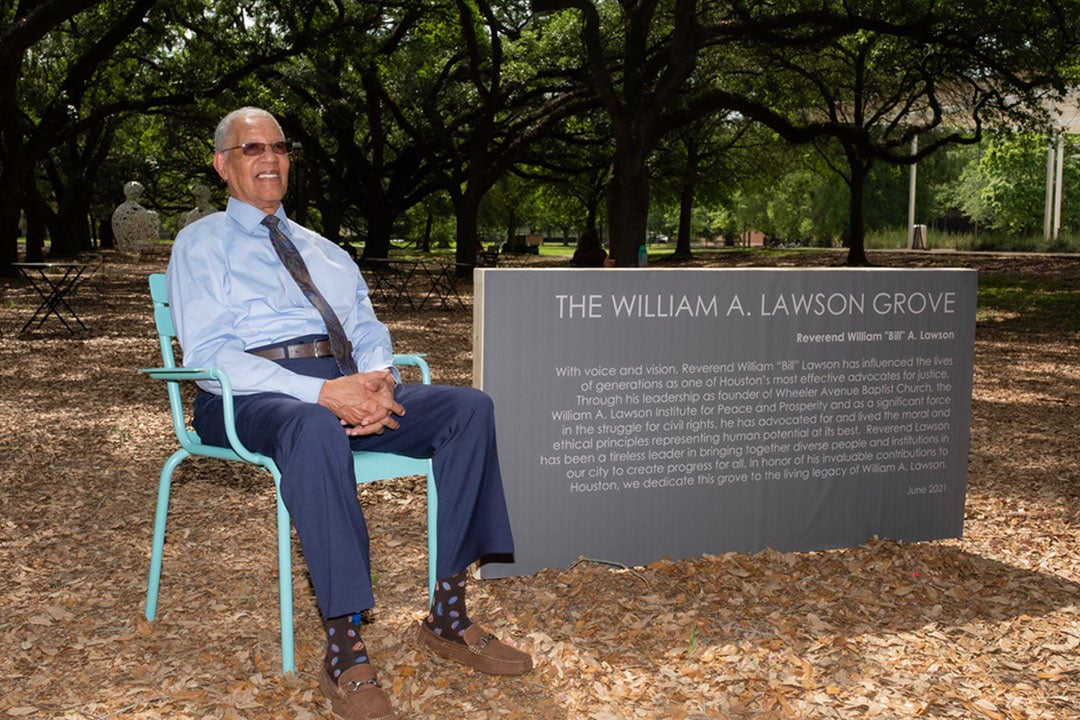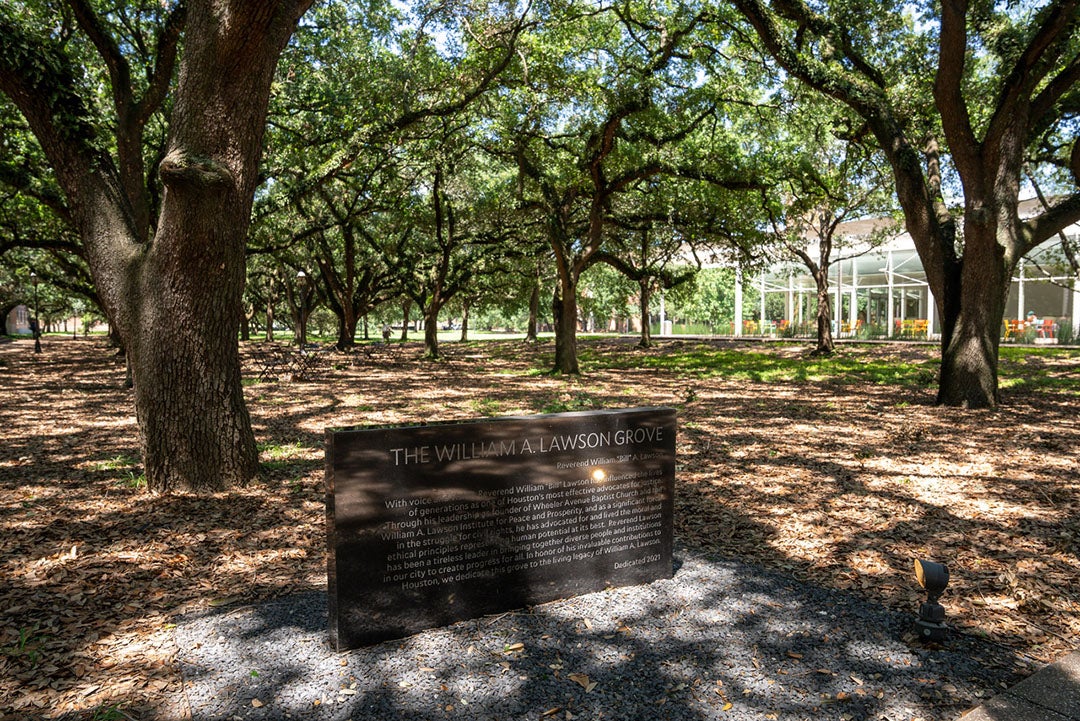At the heart of Rice University’s campus lies The William A. Lawson Grove, a tribute to an esteemed civil rights champion and cherished community leader. Today, the Rice community mourns the passing of Rev. Lawson, who was 95 years old.
The grove in the central campus quadrangle was established in 2020 under the leadership of former Rice President David Leebron in honor of Lawson’s many contributions to the university and the city of Houston. As the founding pastor of the Wheeler Avenue Baptist Church, Lawson has been one of the city’s most influential civic voices for over 60 years. He was awarded the 2020 Klineberg Award from Rice’s Kinder Institute for Urban Research for his decades of community service.
Lawson played a crucial role in shaping the civil rights movement in Houston, standing shoulder to shoulder with Martin Luther King Jr. and tirelessly advocating for the peaceful integration of schools and other institutions. Through the William A. Lawson Institute for Peace and Prosperity , he championed the cause of marginalized individuals in Houston’s Third Ward. His legacy includes the establishment of two single-gender charter schools, the construction of affordable housing for seniors, and a public defender program which provides legal counsel for those who cannot acquire quality legal services.
“Rev. William Lawson leaves behind a legacy that resonates through generations, shaping the fabric of justice in Houston and beyond,” said Rice President Reginald DesRoches. “His leadership and unwavering vision have left an indelible mark on our community by uniting disparate voices and fostering progress for the greater good. May future generations be reminded of his enduring impact as a beacon in the civil rights movement every time they walk through the grove named in his honor on the Rice campus.”
Nestled between Herring Hall and Brochstein Pavilion, The William A. Lawson Grove is also home to one of Rice’s most renowned public artworks: “Mirror” by Spanish artist Jaume Plensa. This masterpiece features two colossal, gender-neutral figures facing each other. Crafted from stainless steel and adorned with interconnected letters and symbols from eight languages, they exude a sense of tranquility and harmony. Lawson's greatest hope was for harmony among all people. In April 2021, he visited the grove with his family for the first time.
“People decades from now, maybe even hundreds of years from now, will see this marker and they will remember, and I’m grateful for that,” Lawson said in 2021. “If there’s anything that I’d like for my legacy to be, it is for the different cultures of humankind to get to know each other, to respect each other and, if possible, to love each other.”
Woodson Research Center in Rice’s Fondren Library is home to Lawson’s papers , an archive that includes everything from decades’ worth of sermons and lecture materials to a letter of appreciation sent to Lawson by President Jimmy Carter.
Lawson founded Wheeler Avenue Baptist Church in 1962 with only 13 members, but its congregation has since grown to more than 15,000 members. Lawson retired from the church in 2004 but continued to serve as its founding pastor emeritus.
“Through his leadership of Wheeler Avenue Baptist Church, the William A. Lawson Institute for Peace and Prosperity and as a significant presence in the civil rights struggle, he has lived out and advocated for moral and ethical principles representing human potential at its best,” said Leebron when Rice announced the naming of the grove in 2020.
Lawson was born in St. Louis but grew up in Kansas City before moving to Houston in 1960 to become director of the Baptist Student Union and professor of bible at Texas Southern University. He was drawn into the civil rights movement when 14 TSU students staged a sit-in at a Weingarten’s supermarket lunch counter, an important event in local civil rights history. Alongside his wife, Audrey, they fundraised and bailed the students out of jail. Lawson then facilitated clandestine discussions between white and black business leaders, resulting in an agreement that paved the way for Houston’s peaceful integration.
“Rev. Lawson played a pivotal role in addressing a range of spiritual and civil needs, and in the process helped to foster opportunity for all Houstonians to live in fullness. His legacy will motivate generations to come to live with with purpose and in light of a moral vision and ethical code that privilege generosity and compassion, and that urge us to represent the best of our humanity in the world,” said Rice religion professor Anthony Pinn, Agnes Cullen Arnold Distinguished Professor of Humanities.


